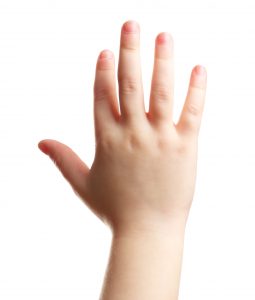The French language has many reflexive verbs, which are verbs that are used with reflexive pronouns such as “me,” “te,” “se,” etc. These verbs indicate that the subject of the verb is performing the action on itself. Here are thirty of the most common French reflexive verbs and their definitions, along with real-life examples in French.
Top 10 French reflexive verbs: Can you spot them?
Thomas : “Je me lève tôt tous les jours, Pour être en forme et prêt pour les tâches. Je me douche pour me réveiller, Et me rase pour être bien rasé.”
Julie : “Je me lave les mains avant de manger, Et me coiffe pour avoir l’air bien. Je me brosse les dents après chaque repas, Et me maquille pour être belle.”
Sophie : “Je me change avant de sortir, Pour être à l’aise et prête pour la journée. Je me parfume pour sentir bon, Et me couche tôt pour être en forme demain.”
Top 10 French reflexive verbs: Your desired list.
- Se lever (EN: to get up)
- Definition: To rise from a lying position
- Example: Je me lève tôt tous les jours pour aller à l’école.
- Etymology: The verb “se lever” comes from the Latin word “levare,” which means “to raise.”
- Se doucher (EN: to shower)
- Definition: To wash one’s body with water
- Example: Je me douche tous les matins pour me réveiller.
- Etymology: The word “douche” comes from the Old French word “douche,” which means “to rinse.”
- Se raser (EN: to shave)
- Definition: To remove hair from the face or other parts of the body with a razor
- Example: Mon père se rase tous les matins pour être bien rasé.
- Fun Fact: The practice of shaving has been around for thousands of years, with the oldest evidence of shaving dating back to ancient Egypt.
- Se laver (EN: to wash)
- Definition: To clean one’s body or clothes
- Example: Je me lave les mains avant de manger.
- Etymology: The verb “laver” comes from the Latin word “lavare,” which means “to wash.”
- Se coiffer (EN: to comb one’s hair)
- Definition: To style one’s hair
- Example: Je me coiffe tous les matins pour avoir l’air bien.
- Etymology: The verb “coiffer” comes from the Old French word “coiffer,” which means “to arrange the hair.”
- Se brosser (EN: to brush)
- Definition: To clean one’s teeth or hair with a brush
- Example: Je me brosse les dents après chaque repas.
- Fun Fact: The use of toothbrushes dates back to ancient civilizations, with the ancient Greeks and Romans using twigs and frayed ends of horses’ manes to clean their teeth.
- Se maquiller (EN: to put on makeup)
- Definition: To apply cosmetics to enhance one’s appearance
- Example: Ma mère se maquille tous les jours pour être belle.
- Etymology: The verb “maquiller” comes from the Old French word “maquiller,” which means “to paint.”
- Se changer (EN: to change)
- Definition: To put on different clothes
- Example: Je me change avant de sortir pour être à l’aise.
- Etymology: The verb “changer” comes from the Old French word “changer,” which means “to exchange.”
- Se parfumer (EN: to perfume)
- Definition: To apply a fragrance to one’s body
- Example: Je me parfume avant de sortir pour sentir bon.
- Fun Fact: The use of perfumes dates back thousands of years, with the ancient Egyptians being some of the first to use perfumes in religious ceremonies.
- Se coucher (EN: to go to bed)
- Definition: To lie down in bed to sleep
- Example: Je me couche tôt tous les soirs pour être en forme demain.
- Etymology: The verb “coucher” comes from the Old French word “coucher,” which means “to lie down.”

